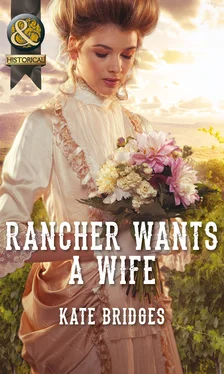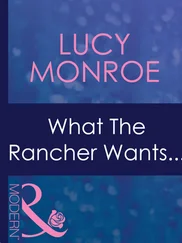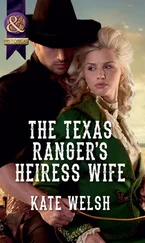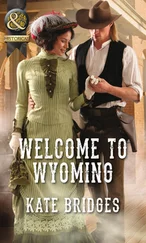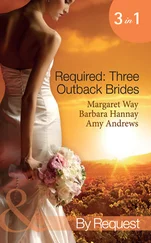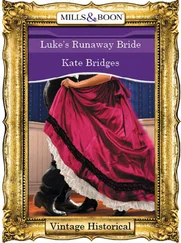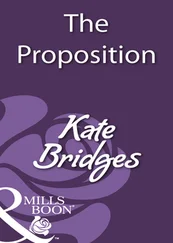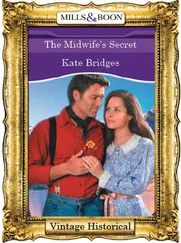To hell with the polished politeness of Chicago society. He could teach her a thing or two about how men were supposed to behave around their women. But would he ever be enough for her?
“Howdy, Dr. McColton,” said one of the Birkstrom brothers as he walked by on the boardwalk. “Wanted to thank you for tending to that calf last week. She’s up and about like nothing happened.”
“Glad to hear it,” said Jack.
“Say, Dr. McColton,” shouted another rancher from across the street. “Could you drop by to inspect that new stallion I got yesterday? He’s jittery. I think the train ride shook him up. And he scratched himself on some barb wire this morning.”
With hesitation, Jack glanced in Cassandra’s direction, feeling guilty about the time he’d be taking away from her. But he couldn’t let an animal suffer. “I’ll squeeze in a visit later tonight.”
“Much obliged.” The rancher looked curiously at Cassandra, then nodded goodbye.
More folks nodded in greeting, but Jack turned his attention back to his bride. Bride. He swallowed hard at the reality. He’d never given marriage much thought. Since Chicago, he’d enjoyed his time with various women and saw no reason to change. Occasionally, he’d thought of marriage in the far future, something that he might do, perhaps should do if he wanted to pass down his land to an heir. Then, when he’d seen Cassandra’s ad, the feelings had come rushing at him like a thundering buffalo.
He climbed aboard the buggy, settled beside Cassandra and flicked the reins. The vehicle rolled smoothly down the main street, its bolts and springs newly greased for the occasion. He became extremely aware of the woman beside him, the proximity of her elbow next to his, the lilt of her chest, the shifting of her thighs beneath her skirts.
“This is incredible.” She craned her neck to take in the view.
Gently sloped hills rolled toward them, terraced with rows of grapevines. Orchards sat on other slopes, filled with peach and plum trees. Raspberry bushes sprang from another acreage. A stream gushed through the valley and on behind the cluster of stores and shops in Sundial, otherwise the place would be as dry as dust. In the distance, saws from the lumber mill echoed in the hills.
“Where’s your ranch?”
He pointed to a sprawling house halfway up the slopes, built of stone and fresh-sawed lumber from the mills. “The white one in the middle of the trees.”
“All that?”
He nodded with pride.
“You’ve worked hard, Jack.”
“And from the sound of it, so have you. You must’ve come to know some of the women at the boarding house quite well.” She’d done odd jobs to help support herself, she’d written in her letters.
She turned away and peered up at two soaring hawks. “Lovely people, all of them, trying to overcome such tragedy.”
He wanted to offer his condolences again on the loss of her sister and father, out in the open this time and not simply through written correspondence. How did one convey the depth of compassion after such a catastrophe? The Great Fire had occurred nearly two years ago, in October of ’71, but the loss was still raw. He shook his head at the thought that one-third of the city’s population had lost their homes. And many had buried loved ones.
“I was so sorry to hear the news about your father and sister. If I had known...I would have been there to pay my respects, and to help if I could.” As for comforting Cassandra, he had mistakenly assumed Troy would be there to do that. How wrong Jack had been. The cousin—the one whose parents had taken Jack in as a boy when his own had passed away from consumption—had offered no support to her at all, because he wasn’t even in Chicago at the time of the fire.
She swallowed and clasped a pink rose on her lap. “Thank you. You mentioned you were in the new lands of Alaska and didn’t hear about the fire till six months later. How did the news finally reach you?”
“I was on a ship traveling down the coast, heading to California. There was an old newspaper stuck inside one of the animal cages. When I opened it, there was a photograph of your street. Burned to ashes.”
He swallowed hard at the memory of pulling out those pages, and the horror of not only seeing it, but being trapped on a ship and unable to do anything, not knowing what had become of Cassandra and her family. “It took another two weeks for the ship to land, and for me to get more information on the fire.”
“That explains why I didn’t hear from you.”
“I tried sending a telegram to locate you. No luck. I wrote to the police. No reply. I wrote letters, two of them, addressed to your father. They came back to me with...with ‘Deceased’ written on them.”
She murmured, “How awful to hear it that way.”
“I tried sending one to Troy, but it was returned, too, with ‘Address Unknown.’ I could only hope you and he had married and you had moved away to another city before the fire started. Perhaps to New York to join his parents.” Only his parents weren’t in New York, according to the private detective Jack had hired, but had gone to Europe somewhere. As had Troy, it turned out.
“There was such chaos after the fire. The police were overwhelmed. All the mail got redirected. There was so much of it, the post offices didn’t know what to do with it all, or how to locate anyone. One hundred thousand people with no address.”
Jack shook his head in wonder that she’d survived all she had.
“I miss them.” Her eyes glimmered with tears, her nostrils flared, her chin trembled. The depth of her loss left him speechless.
Then she took a deep breath and her sorrow shifted. “They would like it here. Mary loved sunshine, and my father would pick your brain on how many other lawyers are in town and whether he could make a fine living here himself.”
“Gordon always did like a good argument.”
She could have taken the statement badly, considering how often Jack had debated with the old gent, disagreeing on everything from city planning to job opportunities. Instead, she smiled softly and nodded.
“What newspaper did you see my advertisement in?”
“San Francisco Chronicle.”
He’d been shocked as hell when he’d seen her ad as a mail-order bride. First, that she’d survived the fire alone, and was still in Chicago. Second, that she and Troy were not married.
Jack nodded in greeting to two older folks walking toward the mercantile that sat beside the post office.
Horses clomped along the rutted grooves of the wide road. Riders on horseback, and other wagons sped along the busy shops.
Cassandra craned her neck to look at the sheriff’s office and jailhouse when they passed it, and another law office.
“So after the fire, Cassandra...who took care of you?”
She pivoted sharply to look at him, her manner cautious. “I took care of myself. I got a room at the boardinghouse, and made my own way.”
There was a lot she wasn’t telling him about that boardinghouse. Jack had received a report three months ago from the private detective he’d hired for a few days, as soon as he’d discovered where she was. This time in dealing with Cassandra Hamilton, he would go into the relationship with eyes wide open. But there was no reason to upset her with his knowledge. She was obviously trying to forget that she had wound up at a home for desolate women.
Desolate women. What a blow to her pride that must’ve been. She’d come from a wealthy family, having a new dress for every occasion, servants who said yes to everything she’d asked. The property had been lost in the fire, the land itself used to pay off debts her father had. Damn. If Jack had known, he would have done something to help her.
Читать дальше
